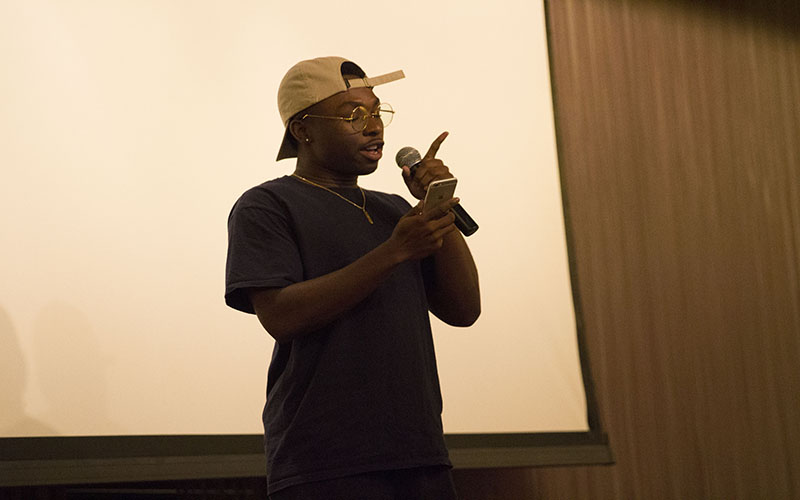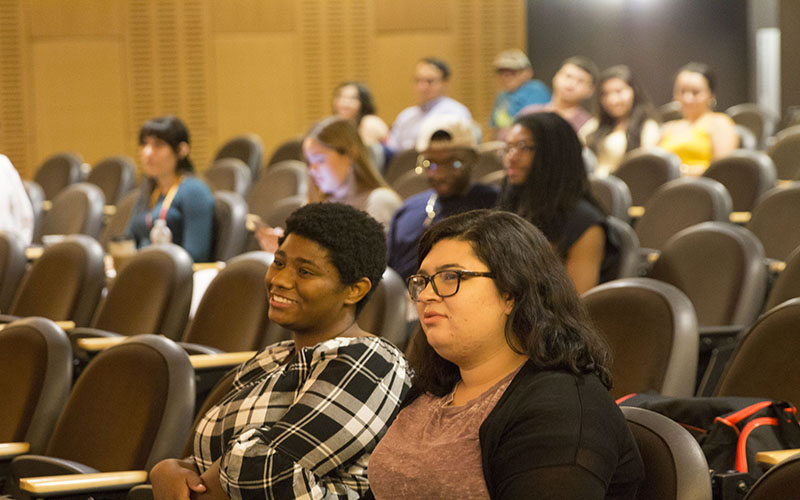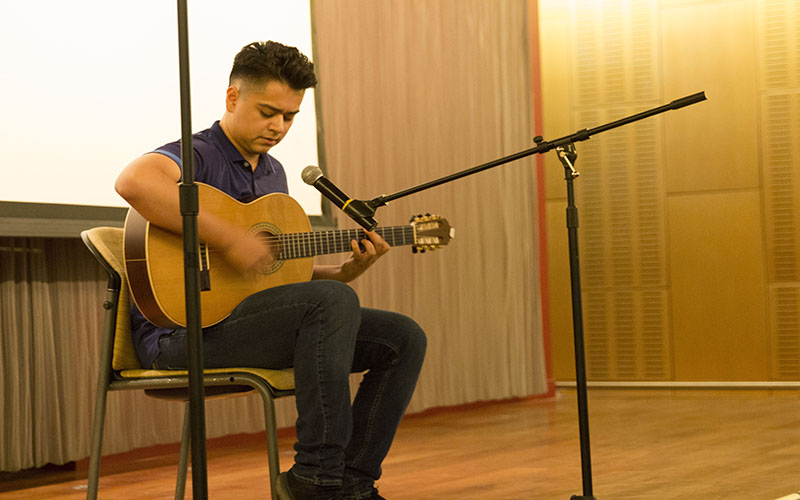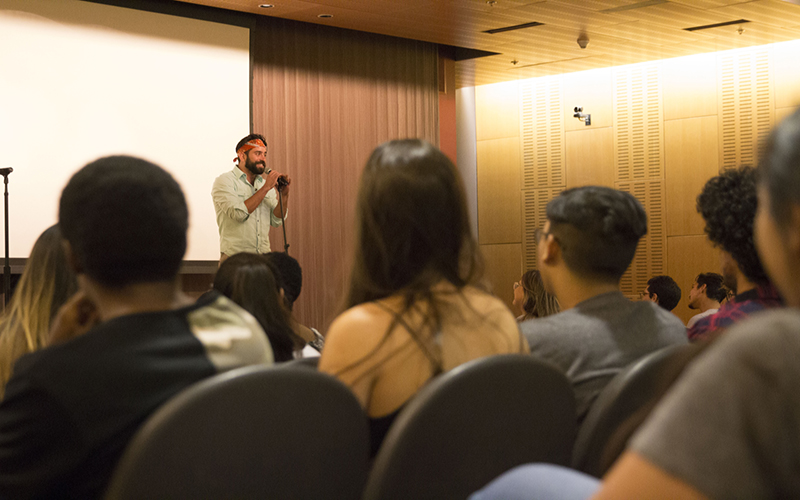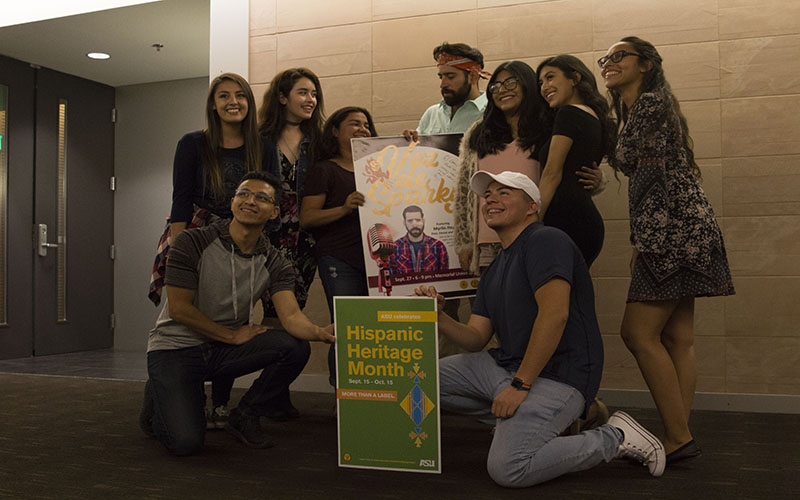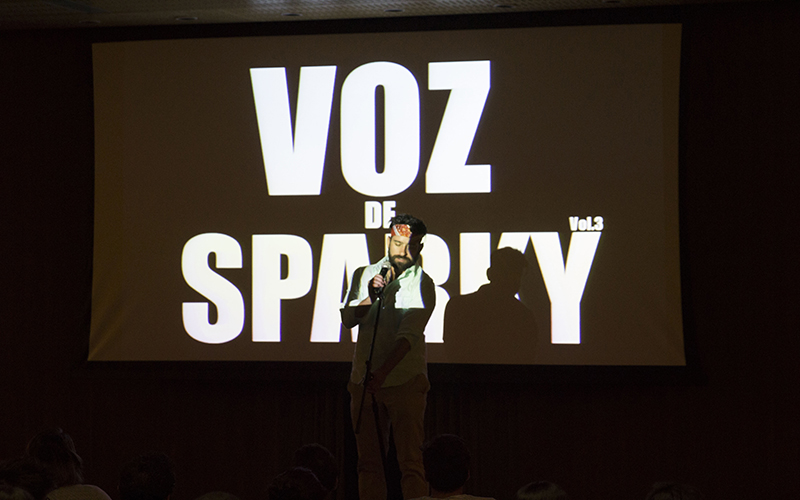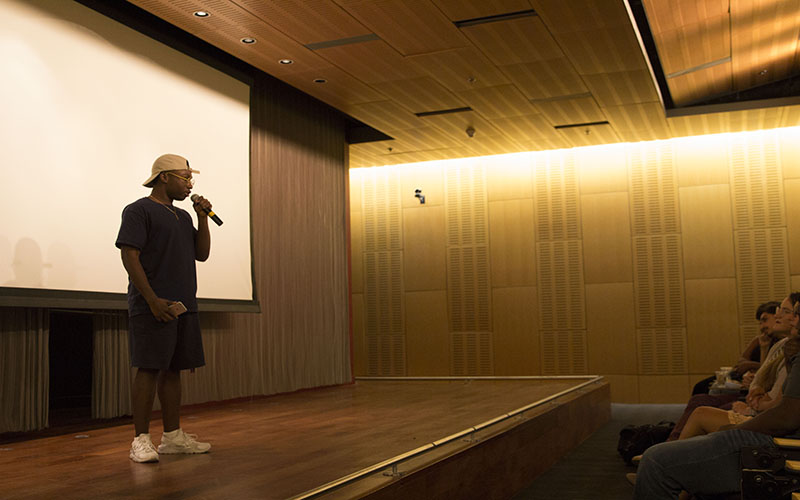TEMPE -Sexual assault. S.B. 1070. Cultural Identity.
Those were some of the many topics, narratives, and themes woven into the poems, dances and songs performed by students and community members at an open mic night, but this wasn’t your typical open mic night. This event was specifically held to welcome bilingual — en Ingles y Español — submissions.
Under a dim spotlight, in an auditorium filled with friends, colleagues, and strangers, Bianca Arellano recited a poem she previously had not found the courage to share, “En mi casa no se habla Ingles,” which means, “In my house, English is not spoken.”
During her bilingual performance, Arellano switched back and forth between Spanish and English, a reflection of what she experienced growing up in a Spanish-speaking household and going to English-speaking schools.
“To me it was a really big part of who I am and that’s just always stuck with me, knowing that I can’t forget that I came from knowing only one language,” she said. “I came from this culture and this history so, for me, keeping Spanish alive in our family helps me keep in touch with who we are and our roots.”
For Angelica Rodriguez, president of El Concilio, the organization that put on the event at Arizona State University’s Tempe campus, that was exactly the point — to provide an outlet for people to express themselves in their native tongue, and to do so in a place where they wouldn’t feel attacked for not speaking English.
“I just think that sometimes, in your native language you’re able to understand someone’s background, and students can say, ‘I know how to speak that language’, and find that community within that language,” Rodriguez said.
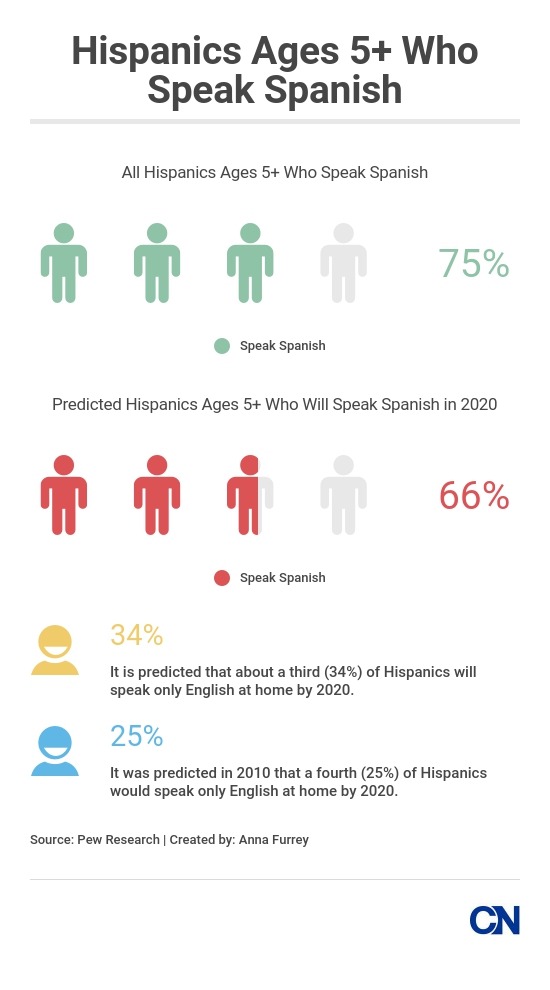
While Voz de Sparky started back in 2015, and, according to Rodriguez, has always been a bilingual event, this is the first year where it was explicitly defined and marketed as such.
“We really wanted to bring bilingual Voz de Sparky to give the opportunity to students who are bilingual, whether it’s Spanish, Arabic, French, whatever they speak, to express that through poetry, art and dance,” she said.
Rodriguez also shared the idea behind Voz de Sparky, was originally to fill the need for an event to help students connect via language, which for many, plays a big role in defining their identity.
“We originally wanted something different and we realized that Spanish, the language, plays a role in a lot of people’s lives, it plays a role in the Hispani-x, Chican-x, Latin-x heritage.”
Kevin Villa, a recent ASU graduate, had been seeking an opportunity to reconnect with his roots, and at Voz de Sparky, he did so by performing entirely in Spanish.
Villa walked onto the stage with a guitar in hand, and quietly spoke into the microphone a poem he wrote specifically for the occasion.
“It’s my first poem I’ve ever written probably,” he said.
Reflecting on the need to express thoughts, feelings and opinions in one’s native tongue, Villa shared there is an opportunity with these kinds of events for a deeper connection between people.
“Each language is in a way the lens with which you perceive reality,” he said. “It’s more intimate, for me at least,” he added.
Nowadays, Villa shared that he’s actively looking to practice Spanish, mostly getting to do so when speaking to his mother.
According a study from Pew Research Center focused on Latinos in the U.S., three-fourths of all Hispanics ages 5 and older speak Spanish. However, that share is projected to fall to about two-thirds in 2020. The share of Hispanics that speak Spanish reached 78 percent in the 2000s.
As the share of Hispanics who speak Spanish falls, the share that speaks only English at home is expected to rise. About a third (34 percent) of Hispanics will speak only English at home by 2020, up from 25 percent in 2010, according to Ortman and Shin.
A similar report by the Pew Research Center done in 2012, said that 95 percent of the Hispanic adults who took part in the survey shared it’s important for them that future generations speak Spanish.
The survey response was also echoed by another attendee at Wednesday night’s open mic, Jennifer Cervantes, a student at Grand Canyon University.
“I speak English mostly now. I wouldn’t want it to fade out, but I feel like unfortunately it is, and I just would like to keep it,” she said, adding, “If I have children, I want to teach them Spanish and want them to know the language as well.
There were also those in the audience, like Tireek Cody, who while not necessarily fluent in Spanish, felt welcomed to share their own stories as well and came away encouraged to connect with a culture different than their own.
Cody also added that while he spoke only a little Spanish, he felt more encouraged to further explore the language and one day become fluent.
“I’m definitely gonna try and interact with the Hispanic community more because they’re people just like us. Everybody has their issues, and everybody needs that outlet to express themselves,” Cody said.
